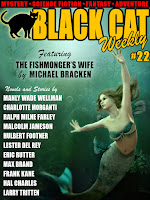The first is the Compiler. The Compiler does no actual editing, publishing work exactly as received. Though this type of editor is often found at the bottom end of the publishing heap, I have worked with a few well-known editors who may be compilers. I wish I could say that my work is perfect and needs no editing—well, I could say it, but no one would believe me—but when editors provide no feedback beyond an acceptance letter and/or contract and I later discover mistakes (typos, for example) in the published work that match errors in my manuscript, I suspect that editor is a compiler.
The two ends of the continuum are represented by the Writer is God editor and the Editor is God editor.
The Writer is God editor has the writer confirm every change and correction, no matter how insignificant. A manuscript may pass back and forth several times before it is put into production, and then the Writer is God editor has the writer review and sign off on page proofs—no one produces actual galleys these days—before approving the finished product for printing.
The Editor is God editor never shows changes and corrections to the writer, and never shares page proofs. The writer only knows what’s happened once contributor copies arrive, if they arrive because the Editor is God editor sometimes doesn’t even bother to send contributor copies.
THE GOD CONTINUUM
Most editors exist somewhere on the continuum, and I’ve worked with editors at or near both ends. Even so, I have probably been published by more Editor is God editors than Writer is God editors.
Regardless of where an editor may be on the continuum, a good editor will improve a writer’s work, regardless whether the writer’s input is sought. I’ve been lucky. I’ve only once had a published story harmed by editing—and that one did not have my byline on it.
Early in my career, I always compared my original manuscripts to my published work in an effort to learn from the editing. Many years ago I stopped doing that, though I do still read the published versions of most of my stories, sometimes surprising myself at how good they are.
Apparently, I should have continued comparing my published work to my original manuscripts. While preparing stories for the potential collections, I’ve discovered that several stories have substantial changes, and the ones that do were all edited by the same person. He published a few of them in a magazine and, after he left that position, published several more in a series of anthologies.
I grumbled when I first discovered all the changes he’d made to one of my stories, and then I grumbled even more when I realized how much he’d changed all the stories he published. I stopped grumbling when I realized how the changes had improved each of the stories, and I wonder how much I could have learned a decade or so ago if I had taken the time to do then what I’m doing now.
WRITER IS GOD
As a writer, I love working with Writer is God editors, but as an editor I understand why so few exist on that end of the spectrum.
Writers submit sloppy manuscripts, filled with weird formatting, extra spaces, improper quotation marks, backwards apostrophes, and the like, and a fair bit of time gets spent just cleaning things up. It’s a waste of time to ask writers to approve corrections of things they should not have screwed up in the first place.
Additionally, many writers do not follow—and may not even know—a publication’s house style. Is it Associated Press, Chicago Manual of Style, or something the publisher created specifically for its own use? And what about things like British spelling vs. US spelling or word selections such as “OK” and “okay”?
It takes time to convert everything in a manuscript to house style and, again, it’s a waste of time to ask a writer to approve the conversion to house style. Publishers establish and use a house style to ensure consistency of their products, and writers are not often given the opportunity to express an opinion about whether they like it or not.
EDITOR IS GOD
The Editor is God editor is not an inherently evil entity. Deadlines, budgets, and corporate policies create situations where it just isn’t practical to touch base with writers every time there’s a change to a manuscript.
Despite the shock of seeing one’s words changed without one’s knowledge, professional editors often improve, and rarely harm, the material presented to them. Rather than being offended by what an Editor is God editor has done to a manuscript between submission and publication, it might be best to learn from it.
For example, many years ago I wrote short stories for a group of women’s magazines. I soon discovered that each time I used a brand name in one of my manuscripts, the brand name had been changed to a generic term in the published version. So, McDonald’s became “a fast-food restaurant,” a Quarter Pounder became “a hamburger,” and a Coke became “a cola.” This was not stated anywhere in the publisher’s guidelines, but as soon as I realized what the editor was doing, I stopped using brand names in my submissions.
WRITER IS MINOR DIETY
I edit several projects—a consumer magazine, a mystery magazine, various anthologies, and miscellaneous other things—and each requires a different approach.
For the consumer magazine, which only publishes non-fiction, the approach is Editor is God. The magazine has three editors, each of whom takes a pass at every article. The only time writers may be involved in editing is during fact checking. For example, if a writer quotes “Steven Smith” and we believe the man’s name is “Stephen Smith,” we check with the writer to determine which is correct.
When editing fiction, I lean toward Writer is God, but do not fully embrace the concept. My approach is more like Writer is Minor Deity. After I’ve fixed all the wacky formatting and made the work conform to house style, I involve writers in more substantive changes. Usually, it’s a single pass: I return manuscripts with the changes indicated using Microsoft Word’s track changes function, and writers have the opportunity to accept the changes and/or to work with me on changes with which they disagree.
With Black Cat Mystery Magazine, the next thing writers see are page proofs, and I may or may not make additional minor corrections/changes to their work between the time I receive the edited manuscripts back from them and the time I deliver the files to production for typesetting and page layout.
With anthologies, there’s often an additional editing step. After I’ve delivered the fully-edited manuscript to the publisher, the publisher’s copyeditor takes a run through it, correcting errors the contributors and I missed and suggesting improvements (better word choices, sentence restructuring, and the like). I review all these changes, accepting the obvious corrections and some of the suggestions, before letting the writers review the copyeditor’s work. Sometimes this is the last thing the writers see; other times they also see page proofs.
LESSONS
Compilers aren’t really editors. So, because you never know if you’re submitting to a compiler or an actual editor, always strive to present your manuscripts as error-free as possible. You don’t want to be called to task by a reader blaming you for mistakes you thought your editor would catch and correct.
On the other hand, if you’re working with editors whose approaches can be placed somewhere on the God continuum, remember that their goal is to publish the best work possible. If they are Writer as God editors, appreciate their efforts to include you in the editing process. If they are Editor as God editors, learn from your final published pieces so that future submissions to those editors require little or no editorial intervention between your submission and the final publication.
My story “The Fishmonger’s Wife,” which first appeared in Pulp Literature, was reprinted in Black Cat Weekly #22.


Enlightening. Certainly in the novel writing business, editing has changed drastically. When I first started, one's book editor did line editing and general advice, and a copy editor did the missing hyphens and added spaces ,etc. One did not have to worry about house style. However, as the business evolved, in my experience, now one's editor purchases books and they go straight to the copy editor.
ReplyDeleteExcellent explanation of a complicated issue. Yes, Janice – enlightening.
ReplyDeleteIf Philip Kerr omitted brand names from his writings, his word count would drop by a third. I’ve poked fun at his novel, The Shot, comparing it with a 1960s luxury catalogue.
ReplyDeleteYet, I bumped into a group of ‘indie authors’ convinced if you used a brand name in a story, without a doubt you were going to be sued. And, not only were you the writer subject to ‘slander’ (they usually meant libel), but McDonand’s competitors might sue as well because your bestselling novel that didn’t mention Burger King treated them unfairly.
I notice increasing numbers of these writers are calling themselves ‘professional indie authors’ and dismiss the rest of us as merely ‘trad writers’. That kind of branding doesn’t seem to bother them.
I’m shocked but not surprised how many sneer at hiring editors. They contend it is a waste of time and money, and will burn up potential profits. But to give others their due, some push back arguing that books need editors.
My experience with editors has been good. I find the real danger of Editor ☛ God is the risk of omitting a plot point or essential clue, both critical in our genre. That happened when William F Gaines exploded at the CCA’s censor Judge Murphy, explaining the plot point he wanted omitted (a black astronaut) was the whole point of the story. That’s when Gaines pulled EC Comics out of the comic book business, which became our gain– Mad Magazine.
Oh, Leigh, I never knew that about Mad Magazine! One of my favorites!
ReplyDeleteMeanwhile, I've run across all three editorial styles, Michael. And I do try to listen and learn. 99% of the time, my experiences have been very, very, very good.
I have had one extremely bad experience with "Editor as God", which missed the whole freaking point of the story (the previously published - by AHMM - "Drifts" & before that had been accepted by you for an anthology that never made it) and wanted me to have more dialog, etc. In a story that's a 5 page soliloquy of someone walking in a blizzard! So I withdrew the story.